At-Will Employment
In Louisiana, unless there is a contract specifying a duration of employment, employers have the right to discharge employees at any time for any reason—whether good or bad—as long as it does not violate any specific statutory prohibitions or for no reason at all.
While employment may be considered at-will, Louisiana courts may recognize claims for breach of an implied contract based on provisions found in employee handbooks or written or oral promises made by the employer. However, these claims are only valid if the terms of employment, including the duration, are specific and definite.
For comprehensive training on maintaining at-will employment, visit EmployerESource and explore our training webinars. These resources offer valuable information for business owners and managers seeking to stay informed and compliant.
For any questions about at-will employment and how to preserve this relationship, please contact EmployerESource. We’re here to provide expert guidance and support.
Bone Marrow Donor Leave Act
Under Louisiana law employers with 20 or more employees and at least one location in the state are required to provide paid leave for employees who undergo a medical procedure to donate bone marrow. The total duration of the leave is determined by the employee but cannot exceed 40 work hours unless the employer agrees to extend it. Employers may request medical verification but cannot retaliate against employees for taking leave to donate bone marrow. If it is determined the employee does not qualify as a donor, the paid leave cannot be forfeited.
For more information or if you have any questions about this law, please contact EmployerESource or download the employee handbook containing state-specific policies.
Deductions of Wages
Under Louisiana law, employers are generally prohibited from assessing fines against their employees or deducting any sum from their wages as a fine. However, there are exceptions to this rule.
The exceptions allow for fines in specific cases where the employee has:
Willfully or negligently damaged goods or works.
Willfully or negligently damaged or broken the property of the employer.
Been convicted or pled guilty to theft of employer funds.
In such cases, fines may be imposed, but they cannot exceed the actual damage caused by the employee’s actions. This ensures that fines are directly related to the harm caused by the employee and are not punitive beyond the actual loss or damage incurred by the employer.
The law reflects the principle that employers should not impose excessive penalties on employees, but reasonable deductions for actual damage or misconduct are permissible under certain circumstances.
To ensure compliance and proper documentation, contact EmployerESource to purchase a payroll deduction form and get expert guidance on payroll regulations. Have questions about payroll deductions? Reach out to EmployerESource today!
Final Wages
Under Louisiana law when an employee is discharged or resigns, the employer is required to pay all wages due to the employee. If the employee is discharged, payment must be made by the next regular payday or within 15 days, whichever occurs first. For resigning employees, payment must be made by the next payday for the pay cycle in which the employee worked or within 15 days of resignation, whichever occurs first.
Payment is to be made in the same manner as during employment, though it may also be mailed to the employee's last known address if prepaid postage is provided. If there's a dispute over the amount due, the employer must pay the undisputed portion, and the employee has the right to take legal action to recover the remaining amount.
Vacation pay will be considered "due" only if the employee has accrued vacation time but hasn't taken or been paid for it at the time of discharge or resignation. Likewise, commission, incentive pay, or bonuses will be considered "due" only if earned according to the employer's policies at the time of separation.
For any questions or clarification regarding this law, please contact EmployerESource or refer to your employee handbook, which includes state-specific policies and procedures.
Garnishments of Pay
Under state law, when an employee’s wages are subject to a garnishment judgment, the court allows the employer to deduct a $3.00 processing fee from the employee’s nonexempt income for each pay period the garnishment is in effect. This fee is intended to cover the administrative costs incurred by the employer in complying with the garnishment order.
For more information on how this law applies to your business or your employees, contact EmployerESource today. You can also download our Employee Handbook with up-to-date, state-specific policies to ensure your organization stays compliant.
Jury Duty
Louisiana law protects employees who are called to serve on a jury. Employers may not fire or discipline an employee for serving jury duty, as long as the employee provides reasonable notice of the summons.
Employers are also required to provide up to one day of paid leave for jury service without deducting from sick, emergency, or personal leave or reducing any employment benefits.
To avoid costly penalties and ensure your policies align with Louisiana law, contact EmployerESource today.
You can also download our Employee Handbook with Louisiana-specific policies to keep your business protected and informed.
Wage Reduction
Louisiana law requires that employers:
Notify employees at the time of hire about their wage rate, how and how often they’ll be paid, and any changes to this information.
If no specific payday is designated, employers must pay employees on the 1st and 16th of each month, or as close as practicable.
Employers engaged in manufacturing, oil drilling, mining, or public service corporations with 10 or more employees must pay workers at least twice a month, with paydays spaced about two weeks apart.
Employers must display a notice (provided by the Louisiana Workforce Commission) in a prominent location alongside other required postings, informing employees of their wage rights.
Make sure your business is following Louisiana's pay frequency and notice laws. Contact EmployerESource for expert guidance, or download an Employee Handbook with state-specific policies to stay fully compliant and avoid costly fines.
Weapons Policy
Under Louisiana Revised Statute 32:292.1, employers and property owners may not prohibit employees or visitors from transporting or storing a legally-owned firearm in a locked, privately-owned vehicle parked in company parking lots, garages, or designated parking areas—unless otherwise restricted by State law.
Key Points:
The law applies to privately-owned vehicles, not vehicles owned or controlled by the employer.
Employers can designate a separate parking area for vehicles containing firearms, but it must be “reasonably close” to the regular parking area.
Employers may establish policies requiring that firearms be hidden from plain view or stored in a locked case or container inside the vehicle.
Louisiana's firearm storage law can create legal risks if not handled properly. Contact EmployerESource to ensure your workplace policies comply with state law, or download our Employee Handbook with Louisiana-specific policies to help you balance safety, rights, and compliance.

